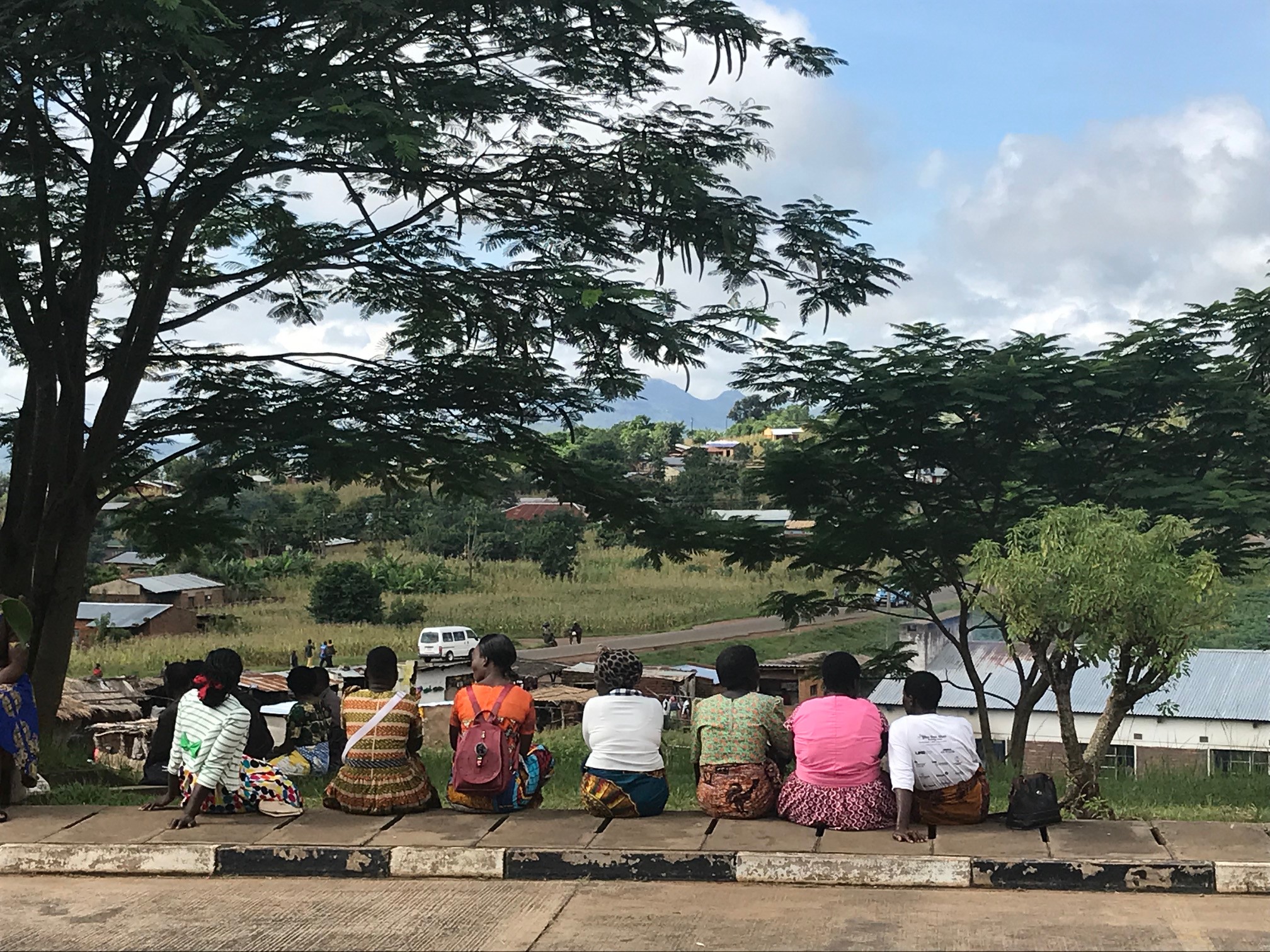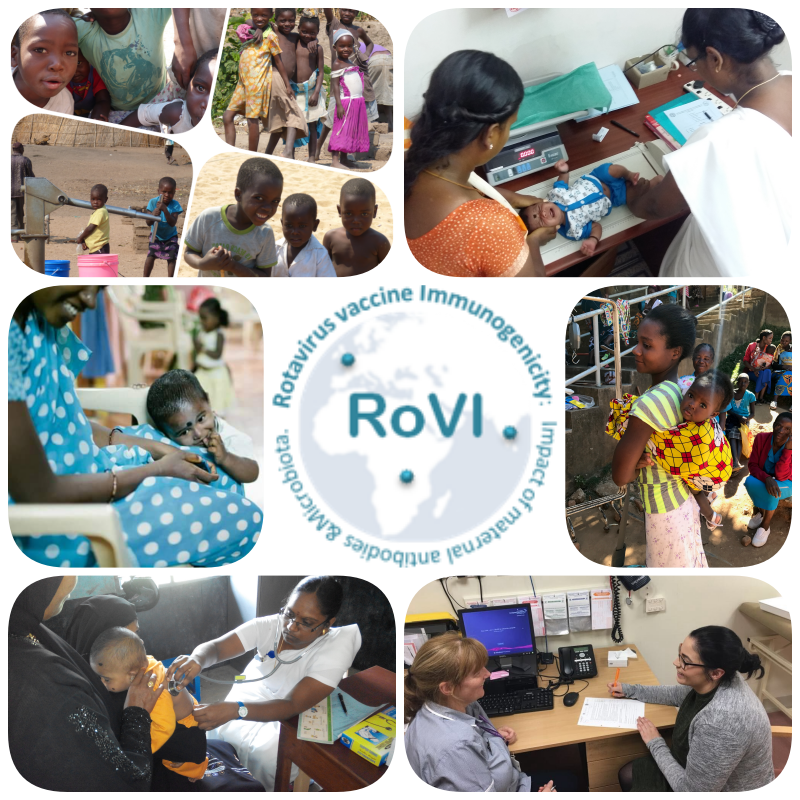
Solving the puzzle of decreased rotavirus vaccine performance in LMICs

Photo: Mothers wait outside Chiradzulu District Hospital in Blantyre, Malawi. The RoVI study compared immune responses to rotavirus vaccines across children in Malawi, India, and the United Kingdom. PATH/Miren Iturriza-Gomara
Rotavirus is the leading cause of severe and fatal diarrhea in infants and young children around the world. Since they first became available in 2006, rotavirus vaccines have cut the annual number of deaths due to rotavirus globally by half. However, the orally administered vaccines are less effective in low- and middle-income countries (LMICs)—where the vast majority of rotavirus hospitalizations and deaths occur—compared to high-income countries. In Malawi, for example, rotavirus vaccines are approximately 50% effective, compared to 95% in the United States and United Kingdom. Similar differences have been seen with other oral vaccines such as those for polio.
A simple explanation for these differences has eluded researchers for years, but recent findings from the Rotavirus Vaccine Immunogenicity (RoVI) study may help shine a light on answers and possible solutions. We spoke with study author and PATH researcher Prof. Miren Iturriza-Gomara to learn more.
DefeatDD: First, a bit of background. What makes oral vaccines susceptible to differences in immune response?
Prof. Iturriza-Gomara: We do not know for sure, and it is likely multifactorial. Some of the key factors could include malnutrition, the high burden of enteric infections and associated gut damage, the high prevalence of endemic infections such as HIV, malaria, and tuberculosis, possible interference between oral vaccines administered at the same time, and—potentially—the protection acquired by passive transfer of maternal antibodies. The important role of the microbiome in gut health and on immune development and vaccine response is increasingly being recognized.
DefeatDD: How was the RoVi study conducted?
Prof. Iturriza-Gomara: Led by the University of Liverpool, the study was conducted in two countries that experience suboptimal efficacy of rotavirus vaccines, Malawi and India, and in the UK, where rotavirus vaccine efficacy is high. In total, 664 pregnant women across three sites in Liverpool (UK), Blantyre (Malawi), and Vellore (India) were recruited to the study. Samples and data were collected from the mother-infant pairs throughout the first three months of the infants’ lives. All infants in the three countries received ROTARIX, a two-dose oral rotavirus vaccine. The team analyzed and compared the amounts of rotavirus-specific antibodies in blood and breast milk, vaccine shedding in the infants’ stool, markers of inflammation, and gut microbiota development from birth and at the time of vaccination. These data allowed the study team to observe patterns across and within countries between infants that mounted an immune response to the rotavirus vaccine and those that did not.
DefeatDD: What were the findings, and what do they tell us about why rotavirus vaccines don’t work as well among children in LMICs?
Prof. Iturriza-Gomara: As expected, more UK babies developed immunity to rotavirus than those in Malawi and India. None of the factors investigated proved to be clear-cut contributors to poor vaccine performance across all three countries. However, we had several interesting findings.
We did find that higher levels of antibodies in the Indian mothers’ blood and breast milk were correlated with a lower response to the vaccine, but this was not a universal association. Mothers in the UK had similar levels of antibodies to the mothers in India, but in the UK, there was no association with the ability of the infant to respond to the vaccine. This suggests that maternal antibodies alone are not the answer.
Interestingly, over half the infants in the Indian cohort were found to have had an asymptomatic infection with a unique neonatal rotavirus strain in the first week of life. The infants that had this early asymptomatic infection showed a better immune response to the rotavirus vaccine.
Additionally, infants from Malawi and India were found to have a more diverse gut microbiome at a young age compared to UK infants, and this diversity was associated with a poorer immune response to the rotavirus vaccine. This was a surprising finding, because scientists have long thought that a “healthy” microbiome is one that is more diverse. So this study highlights that gut health is more complex than previously thought.
DefeatDD: So, how can we improve the performance of rotavirus vaccines in LMICs?
Prof. Iturriza-Gomara: Vaccinating infants earlier—soon after birth—may provide an opportunity to improve vaccine efficacy in babies in LMICs. The data from this study provide support for further investigation of neonatal immunization, either with an asymptomatic neonatal strain or a vaccine-attenuated strain. Other approaches that are currently being investigated include changes in vaccine design and route of administration. Injectable vaccines, for example, are known to provide higher and more uniform levels of antibodies than oral vaccines.
Vaccinating infants earlier—soon after birth—may provide an opportunity to improve vaccine efficacy in babies in LMICs.
Alongside improved vaccines, non-medicinal interventions aimed at reducing transmission of rotavirus and other enteric infections—such as improvements in hygiene and sanitation and access to safe food and water—can also help improve vaccine effectiveness.
 The Rotavirus Vaccine Immunogenicity (RoVI) Study enrolled mothers and infants in India, Malawi, and the United Kingdom.
The Rotavirus Vaccine Immunogenicity (RoVI) Study enrolled mothers and infants in India, Malawi, and the United Kingdom.


